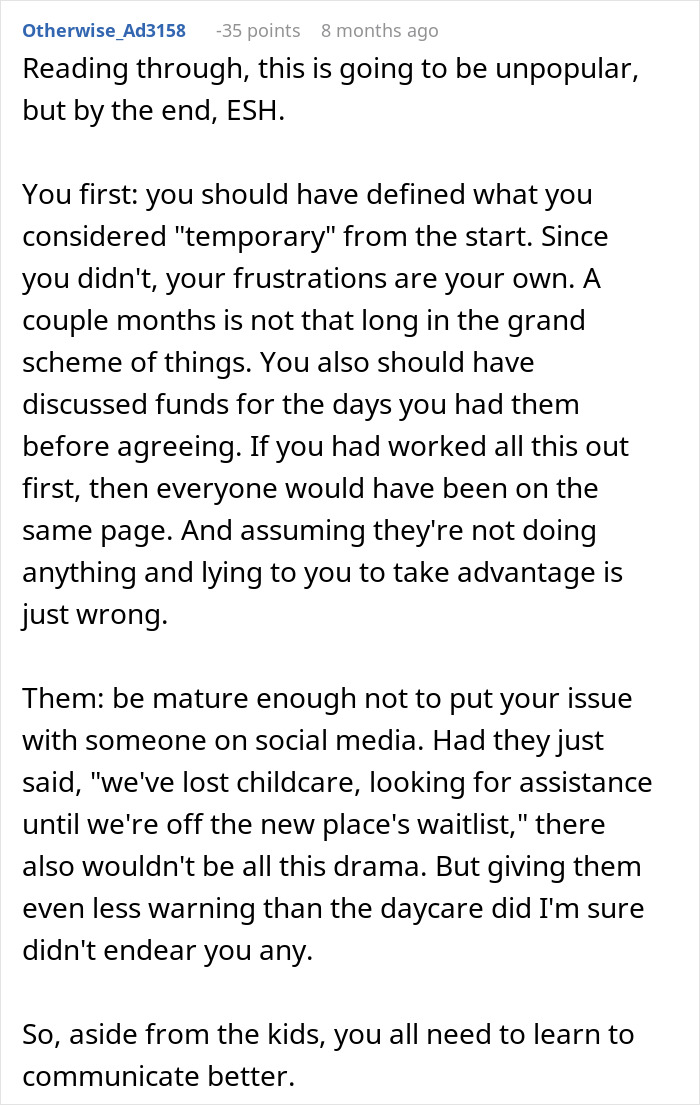Finding reasonable, quality, and available child care is something many working parents struggle with. To make matters easier, some turn to their relatives for help, which is certainly a more convenient and affordable option. However, this can quickly backfire when such a privilege is taken advantage of.
Just like what happened to this woman who was babysitting her niece and nephew while their parents were searching for a new daycare. This arrangement was supposed to be temporary, but after two months, she was still looking after them out of her pocket. Having enough, she requested payment for her services, which majorly upset them, causing family drama.
Asking relatives to babysit can be a great option for parents struggling with childcare

Image credits: LightFieldStudios / envatoelements (not the actual photo)
However, this couple overstepped all boundaries when they left their kids at SIL’s house to babysit full-time for free
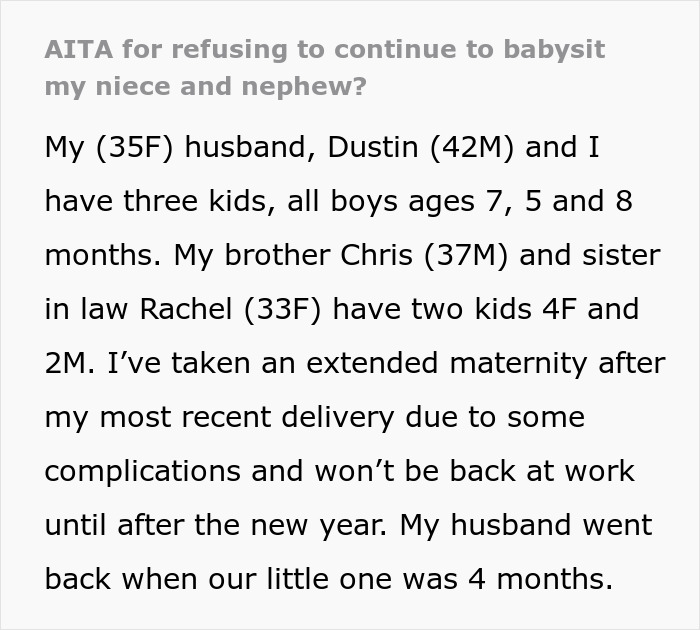
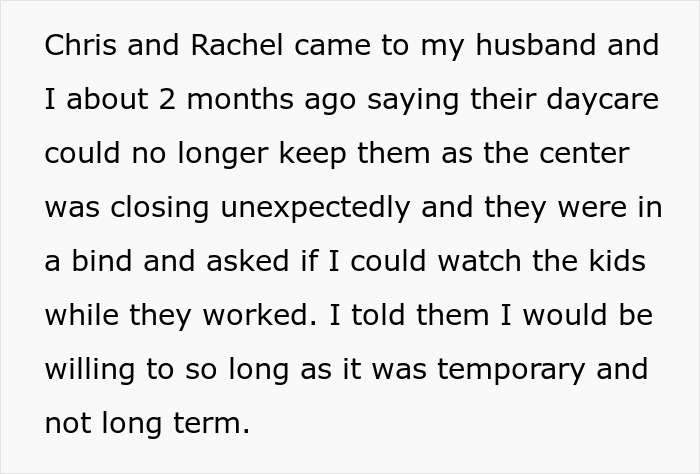
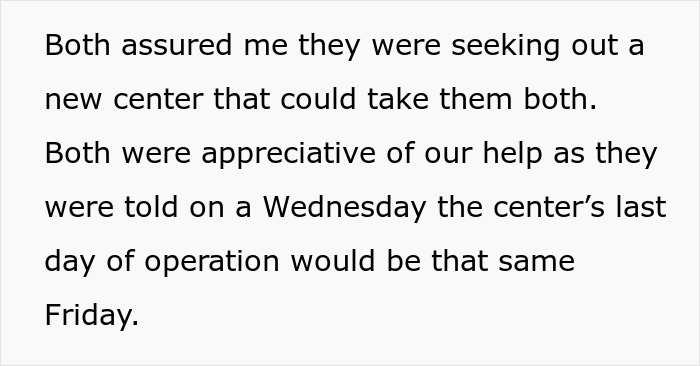


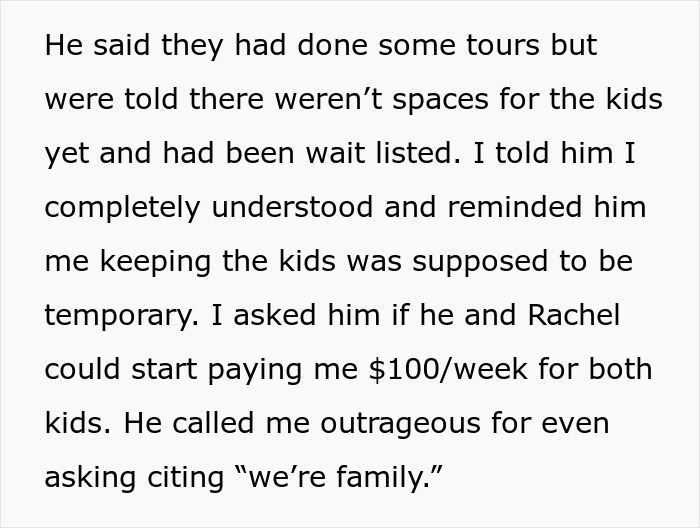

Image credits: LightFieldStudios / envatoelements (not the actual photo)


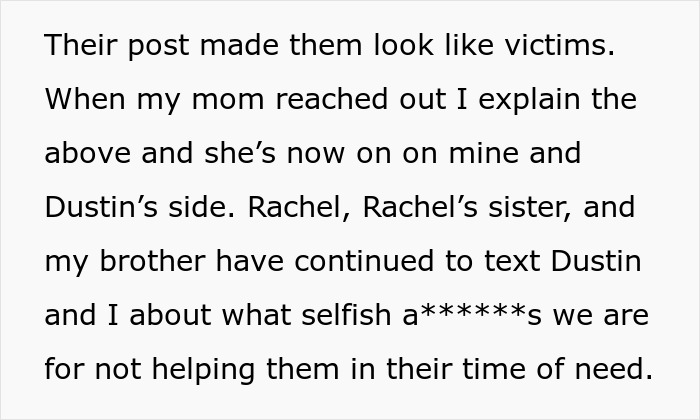

Image credits: anon
“Offer what you feel comfortable paying, and give family members the opportunity to speak up if your offer doesn’t seem right”

Image credits: Prostock-studio / envatoelements (not the actual photo)
“Providing relief by taking care of someone’s kids for free can be monumental for young families, but the reality is that some people can’t afford to,” says etiquette expert Lizzie Post, who’s not a parent but frequently babysits her nieces and nephews. She often voluntarily offers to watch them so she doesn’t charge for it. However, she mentions that this can vary depending on what works for certain people and their families.
Post provides a few scenarios when paying relatives who help with kids should be a given. One of them is when they have to spend money on them or miss work to babysit them. “Offer what you feel comfortable paying, and give family members the opportunity to speak up if your offer doesn’t seem right. It’s fine to negotiate and talk about it,” Post suggests.
If parents can’t offer a competitive hourly rate, they can think of more affordable alternatives, like a $50 gift card to a salon, so they can treat themselves. When that’s not possible, Posts encourages them to be open about their circumstances by saying something like, “Things are tough for me right now, and I could really use some relief.”
Despite parents’ budgets, Post says that it’s good etiquette to show appreciation for relatives by making things easier for them. This means delivering the kids fed and/or with snacks, diapers, toys, and planned activities (if possible!).
“To ignore the emotional and physical labor you’re asking someone else to do for you doesn’t benefit anyone in that relationship”

Image credits: deriabinanatalia / envatoelements (not the actual photo)
While Post recommends choosing a payment strategy that both sides will be satisfied with, former nanny Kaitlyn Wilson stirred quite the debate on her TikTok account when she posted a video saying, “Are other people’s families out here charging them to watch their kids for a few hours? That’s absolutely absurd if they are.”
She always offers her services for free when babysitting family kids, and explains why. “I get the opportunity to create a relationship with my nephew by babysitting him and being around him,” she said. “It’s the responsibility of adults to foster relationships with children — I’m a firm believer of that. When kids grow up and they are not close to older relatives, it’s not the fault of the adult child.”
If she was paid to watch her nephew, she would feel like spending time together was an obligation. As a result, the caregiver might provide the bare minimum and watch the clock tick until the parents come home, which children might notice. “Kids pick up on more than we think — if they later found out you were paid to hang out with them, they might feel like a burden,” she says.
However, experts disagree that paying relatives for babysitting should be completely thrown out of the window. Especially for the sake of their relationship. “To ignore the emotional and physical labor you’re asking someone else to do for you doesn’t benefit anyone in that relationship,” says Bonnie Scott, a therapist and founder of Mindful Kindness Counseling.
What’s important to keep in mind is that every childcare arrangement is nuanced and worth discussing before to avoid any feelings of underappreciation or resentment from building. “If you’re thinking about asking family members about compensation for watching your kids, chances are they have thought about it too and have an answer ready for you,” Posts says. “There’s no one situation that’s right for everyone.”
Most readers agreed that the author wasn’t a jerk for asking for compensation for her service
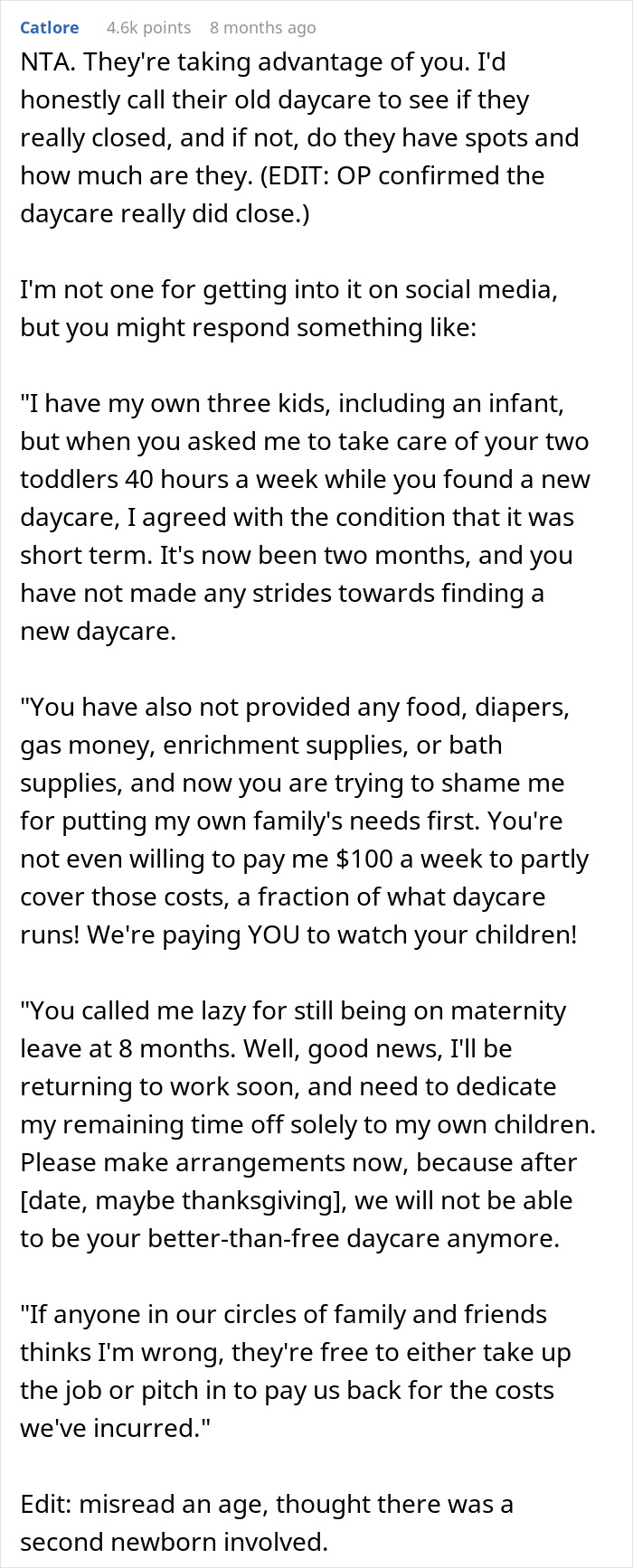
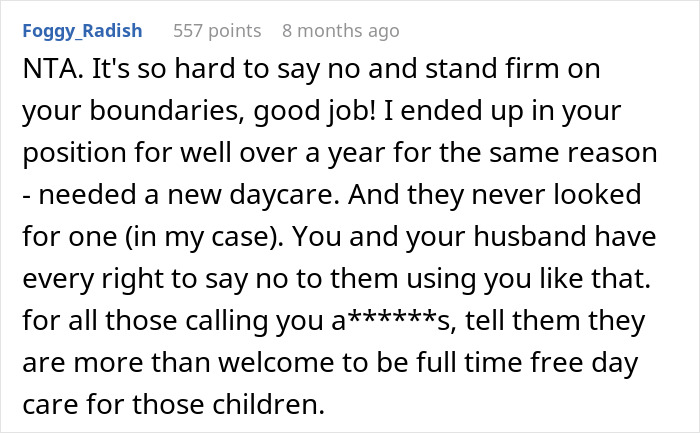
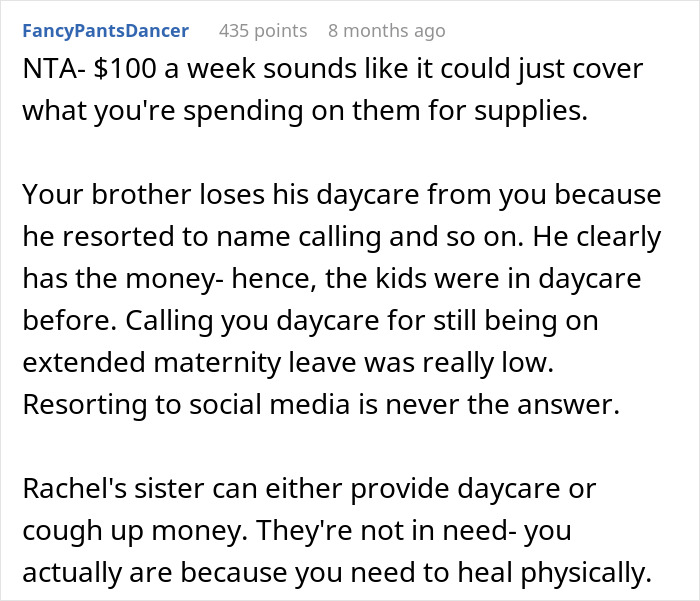

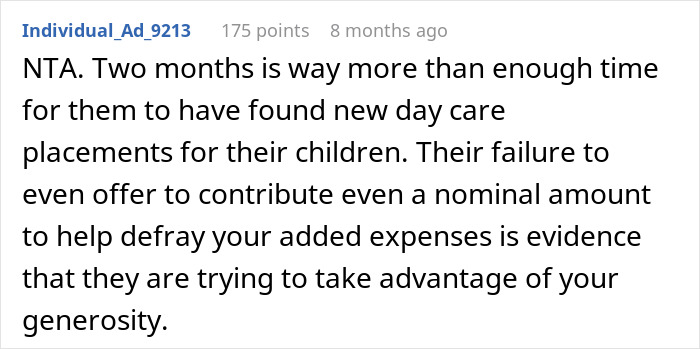

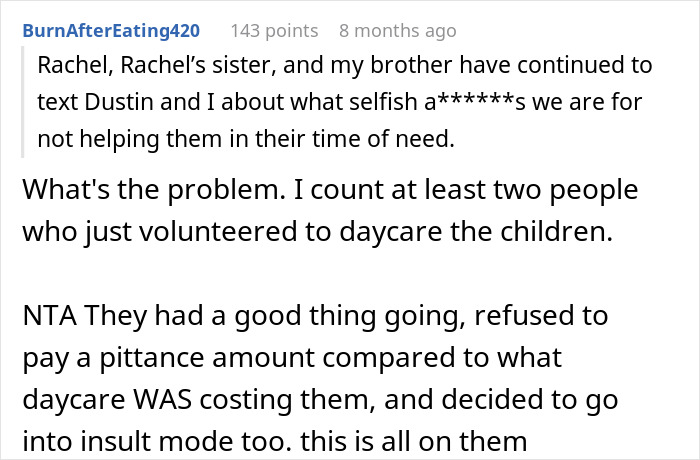
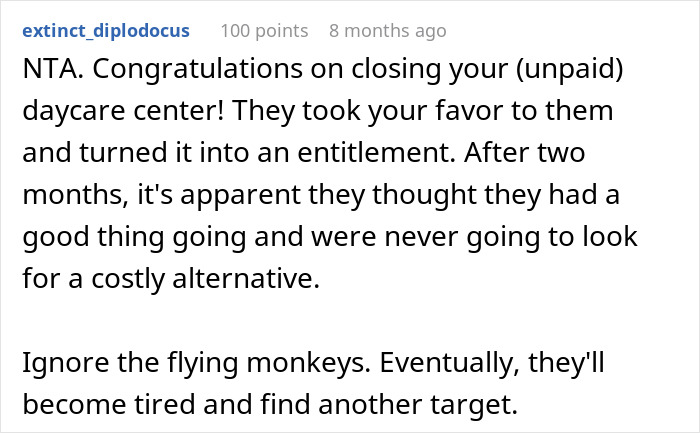



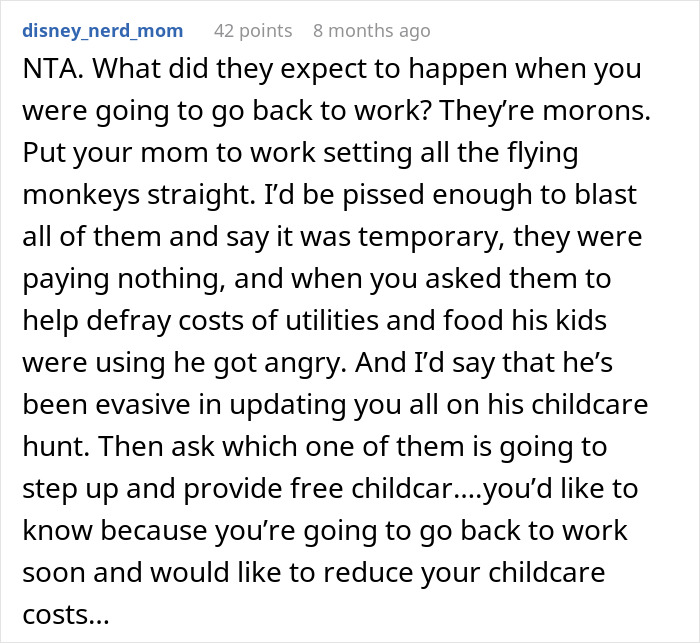

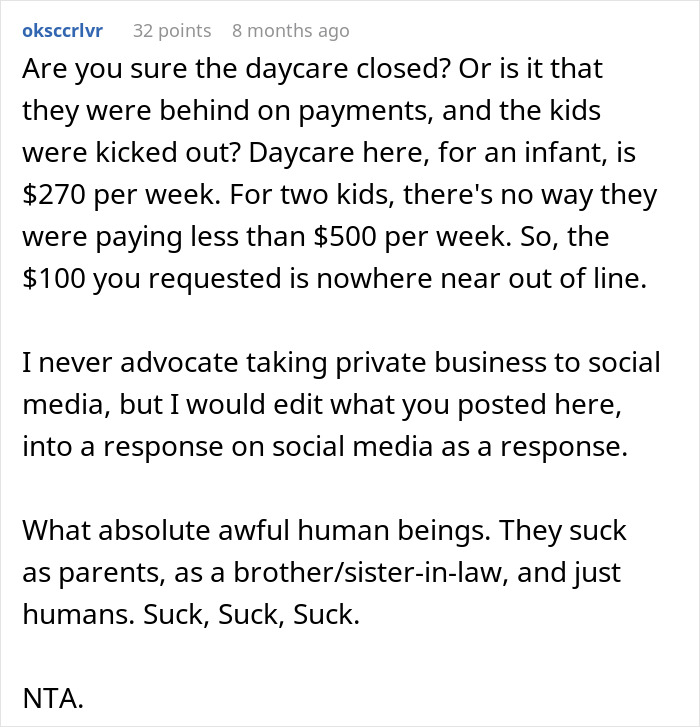


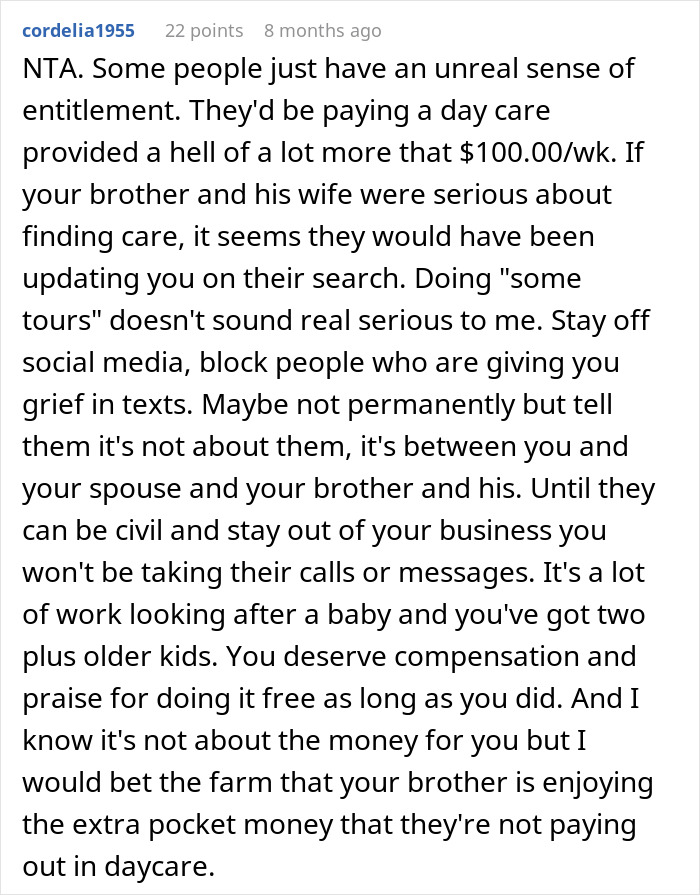








Meanwhile, some believed that both sides were wrong

